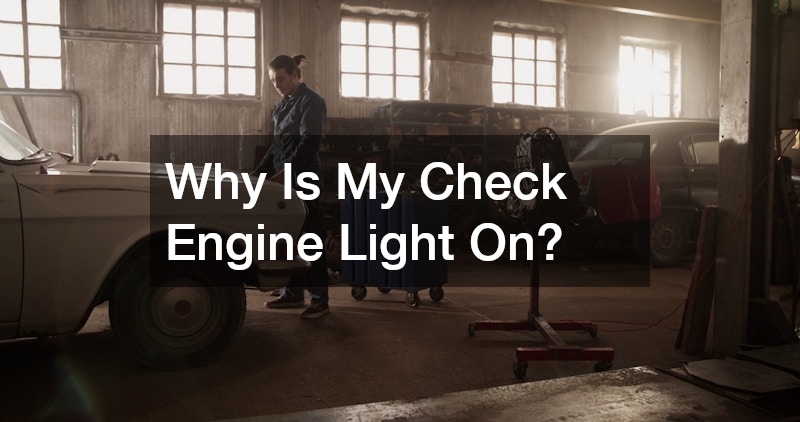Understanding your vehicle can be challenging, especially when problems arise unexpectedly. Knowing the answers to common questions can save you time, money, and stress. This guide covers essential auto repair FAQs to help you maintain your vehicle, spot early warning signs, and make informed decisions about services such as auto brake repair, transmission replacement, and car detailing. With this knowledge, you’ll feel more confident managing vehicle repairs and understanding what a mechanic does when your car needs attention.
How Often Should I Service My Car?

Regular maintenance is key to keeping your vehicle running smoothly and avoiding costly repairs. Understanding service intervals helps you plan auto repair appointments and keep your car in optimal condition.
Regular Service Intervals
Most vehicles have recommended service intervals based on mileage or time. Following these guidelines ensures that critical systems like brakes, transmission, and engine components are checked regularly. Skipping routine maintenance can lead to issues such as costly transmission repair or unexpected auto dent repairs from neglected minor accidents.
Oil Change Frequency
Oil is the lifeblood of your engine, and regular changes prevent wear and tear. Depending on your vehicle and driving habits, oil changes are generally needed every 3,000 to 7,500 miles. Consistent oil maintenance protects your engine and reduces the likelihood of needing major vehicle repairs later.
Tire Rotation Schedule
Rotating your tires helps them wear evenly, improving safety and performance. Most manufacturers recommend tire rotation every 6,000 to 8,000 miles. Maintaining proper tire health not only improves fuel efficiency but also prevents vibrations and uneven handling that could indicate larger issues.
Seasonal Maintenance
Different seasons present unique challenges for your car. Winter may require battery checks and antifreeze levels, while summer may demand attention to cooling systems. Staying proactive with seasonal maintenance can prevent problems like overheating or transmission issues.
Tracking Service History
Keeping a log of all service visits ensures you don’t miss important maintenance. Detailed records help mechanics diagnose problems more accurately and can increase the resale value of your vehicle. This also makes it easier to address questions in auto repair FAQs with confidence.
What Are the Signs of a Failing Transmission?
Transmission problems can escalate quickly if not addressed. Recognizing early signs helps prevent expensive transmission replacement and extensive vehicle repairs.
Unusual Noises
Grinding, whining, or clunking noises when shifting gears often indicate transmission issues. Early diagnosis can save money and prevent complete failure.
Gear Slipping
If your car shifts unexpectedly or slips out of gear, it’s a clear warning sign. Ignoring this symptom can lead to further damage and potential safety risks.
Delayed Shifting
A noticeable delay when changing gears can suggest low transmission fluid, worn components, or other mechanical issues. Timely attention helps avoid more serious repairs.
Fluid Leaks
Transmission fluid leaks often appear as red or brown puddles under your car. Maintaining proper fluid levels is critical to avoid costly transmission repair.
Warning Lights
Transmission or check engine lights may illuminate to indicate issues. Paying attention to dashboard alerts and consulting auto repair FAQs can guide your next steps effectively.
Why Is My Check Engine Light On?

A check engine light can indicate anything from a minor sensor problem to a serious mechanical issue. Understanding its meaning helps you make informed repair decisions.
Consulting auto repair FAQs can help you prioritize the issue and take timely action before it worsens.
Common Triggers
Common causes include loose gas caps, oxygen sensor failures, or catalytic converter issues. Knowing the likely triggers can help you address problems before they escalate.
Auto repair FAQs provide guidance on which triggers are urgent and which can be monitored safely.
DIY Diagnostics
Basic diagnostic tools allow drivers to identify error codes. However, interpreting these codes correctly often requires professional insight to ensure repairs are effective.
Reviewing auto repair FAQs alongside your diagnostics can help you understand the next best steps for safe and effective repairs.
Importance of Professional Analysis
A certified mechanic can diagnose issues accurately and recommend services like auto brake repair, car key replacement, or transmission repair. Relying solely on DIY fixes may miss underlying problems.
Potential Consequences
Ignoring a check engine light can result in poor fuel efficiency, engine damage, or the need for expensive vehicle repairs. Early attention saves both time and money.
Resetting the Light
While the light can sometimes be reset manually, it may return if the underlying issue remains unresolved. Always consult trusted auto repair FAQs to understand the best course of action.
How Can I Improve Fuel Efficiency?
Better fuel efficiency reduces costs and environmental impact. Simple adjustments to driving habits and maintenance can yield noticeable improvements.
Driving Habits
Smooth acceleration, maintaining steady speeds, and avoiding excessive idling help improve fuel efficiency. Aggressive driving not only wastes fuel but also accelerates wear on brakes and transmission components.
Vehicle Maintenance
Regular services such as oil changes, tire rotations, and engine checks optimize performance. Neglecting routine vehicle repairs can reduce fuel efficiency and increase long-term expenses.
Choosing the Right Fuel
Using the recommended fuel type for your vehicle ensures efficient combustion. Higher-octane fuels aren’t always better unless specified by the manufacturer.
Weight Reduction Tips
Removing unnecessary cargo reduces strain on your engine, helping improve gas mileage. Heavy loads can also increase brake wear, potentially requiring auto brake repair sooner.
Aerodynamics and Efficiency
Keeping windows closed at high speeds and removing roof racks when not in use can improve aerodynamics, contributing to better fuel economy.
What Should I Do If My Car Overheats?

Overheating can damage the engine and other vital components. Quick action and preventive care are essential to avoid major vehicle repairs.
Immediate Actions
If your car begins to overheat, safely pull over, turn off the engine, and avoid opening the radiator immediately. Allowing the engine to cool prevents burns and further mechanical damage.
Understanding the Cooling System
Radiators, hoses, water pumps, and coolant all work together to regulate temperature. Regular checks and maintenance ensure these systems function properly.
Preventive Measures
Maintaining coolant levels, inspecting hoses for leaks, and ensuring proper fan operation can prevent overheating. Regular inspections reduce the risk of costly repairs.
Signs of Cooling System Issues
Symptoms include steam from the engine, unusual smells, or fluctuating temperature gauges. Recognizing these early allows prompt intervention.
Professional Cooling System Checks
Certified mechanics can test your cooling system, identify leaks, and perform preventive maintenance. This is often safer and more effective than DIY attempts.
When Should I Replace My Brake Pads?
Brake safety is crucial for driving. Knowing when to replace brake pads prevents accidents and additional brake system repairs.
Indicators of Wear
Squealing, grinding noises, or a longer stopping distance signal that your brake pads may need replacement. Early detection can prevent rotor damage.
Choosing Replacement Pads
Selecting the right type of brake pads depends on your driving style and vehicle. Options include ceramic, semi-metallic, or organic pads.
DIY vs Professional Replacement
While some drivers can replace brake pads themselves, professional installation ensures proper torque, alignment, and safety. Trusted mechanics also inspect related systems for wear.
Brake Pad Lifespan
Brake pads typically last between 25,000 and 70,000 miles, depending on driving habits. Monitoring them regularly can prevent sudden failures.
Associated Brake System Maintenance
Replacing pads often coincides with other maintenance, including rotor resurfacing, brake fluid checks, and caliper inspection. Comprehensive care extends vehicle life.
How Do I Select the Right Mechanic?

Finding a reliable mechanic is essential for accurate diagnoses and successful repairs. The right professional can handle everything from auto dent repairs to transmission replacement, just as personal injury attorneys guide clients through complex legal situations.
Qualifications to Look For
Certified mechanics or technicians with ASE credentials demonstrate expertise. Look for professionals familiar with your vehicle type and services like car detailing or car key replacement.
Reading Reviews and Testimonials
Online reviews, testimonials, and word-of-mouth recommendations provide insight into a shop’s reliability, honesty, and quality of work, much like how clients evaluate personal injury attorneys before choosing representation.
Questions to Ask
Inquire about warranties, parts sourcing, and typical repair times. Asking the right questions can help you avoid unnecessary expenses and ensure transparency.
Assessing Transparency and Communication
A trustworthy mechanic explains the problem, outlines options, and discusses costs upfront. Clear communication reduces confusion and builds confidence in repair decisions, just as a local attorney should communicate clearly with clients.
Understanding Pricing and Estimates
Accurate estimates prevent surprises. Ask for written quotes and compare them with industry averages to make informed choices.
What Causes My Car to Vibrate?
Vibrations can be unnerving and may indicate underlying mechanical problems. Identifying the source helps determine whether you need simple vehicle repairs or more extensive interventions.
Wheel and Tire Issues
Imbalanced or misaligned tires often cause vibrations. Regular rotation, alignment, and inspection prevent uneven wear.
Engine Problems
Faulty spark plugs, worn belts, or engine misfires can result in vibrations. Timely diagnosis ensures safety and prevents more serious damage.
Brake System Concerns
Warped rotors or worn brake pads can create shaking during braking. Addressing these issues early avoids costly auto brake repair.
Structural Realities
Loose suspension components, worn bushings, or bent axles may also contribute. Mechanics can assess and correct structural concerns.
Secondary Vibration Sources
Other sources include exhaust system issues, transmission problems, or even auto dent repairs from minor collisions. Identifying the exact cause is key.
Why Won’t My Car Start?
A car that won’t start can be frustrating. Understanding common causes helps you troubleshoot and take appropriate action.
Battery Issues
Dead or weak batteries are the most common cause. Check connections, test voltage, and replace batteries if needed.
Starter Motor Failure
The starter motor initiates engine ignition. Malfunctions prevent the car from starting even if the battery is healthy.
Fuel Delivery Problems
Clogged fuel filters, failing fuel pumps, or empty tanks can interrupt fuel delivery, leaving your car immobile.
Ignition System Troubles
Faulty spark plugs, ignition coils, or wiring issues disrupt engine firing. Prompt repair prevents further engine damage.
Electrical System Checks
Problems with alternators, fuses, or wiring can also prevent starting. Professional diagnostics are often required to resolve these issues efficiently.
What Is Included in a Full Car Diagnostic?
A comprehensive diagnostic provides a complete assessment of your vehicle’s health and can prevent costly repairs.
Scanning the Vehicle Computer
Mechanics use advanced tools to read error codes from your car’s computer. These codes indicate specific issues in the engine, transmission, or other systems.
Engine Performance Tests
Tests measure efficiency, emissions, and component functionality. Early detection of problems reduces the risk of extensive vehicle repairs.
Transmission Checks
Transmission performance is evaluated for slipping, delayed shifting, or unusual noises. Addressing these issues early may prevent a full transmission replacement.
Exhaust System Analysis
Exhaust inspections ensure compliance with emissions standards and identify leaks or blockages. Proper exhaust function supports overall engine health.
Comprehensive Reporting
Detailed reports summarize findings, recommend repairs, and outline costs. Clear diagnostics improve decision-making and repair outcomes.
Are Extended Auto Warranties Worth It?
Extended warranties can offer peace of mind but require careful consideration.
Coverage Details to Consider
Review what’s covered, including major systems like the engine, transmission, and brakes. Some warranties may also include services like car detailing or car key replacement.
Cost vs. Benefit Analysis
Compare the price of the warranty with potential repair costs. High-mileage or older vehicles may benefit more than newer, fully covered cars.
Understanding the Claims Process
Know the steps for filing claims and any limitations on coverage. Smooth processes ensure repairs are handled efficiently.
Differentiating Warranty Types
Warranties vary from powertrain-only coverage to bumper-to-bumper protection. Evaluate which type meets your needs.
Customer Satisfaction and Experiences
Research reviews and experiences from other drivers. Reliable warranties contribute to peace of mind during vehicle ownership.
Understanding these auto repair FAQs empowers drivers to maintain their vehicles, identify problems early, and make informed repair decisions. Regular service intervals, attention to warning signs, and choosing the right mechanic all contribute to vehicle longevity and safety. From simple car detailing to more complex transmission repair or brake maintenance, knowing the answers to common questions ensures you’re prepared for whatever your vehicle may face. Keeping up with these insights reduces costly surprises, protects your investment, and enhances overall driving confidence. Whether dealing with minor vibrations or exploring extended warranties, these auto repair FAQs serve as a valuable resource for every car owner.
Additionally, being proactive with vehicle maintenance not only extends the life of your car but also improves overall safety for you and other road users. Addressing small issues early—such as unusual noises, warning lights, or minor dents—can prevent them from turning into major repairs that are expensive and time-consuming. Consulting auto repair FAQs regularly helps you understand the importance of routine checks, recognize when professional help is necessary, and make informed choices about services like auto brake repair, transmission replacement, or car key replacement. By staying informed and vigilant, drivers can enjoy smoother rides, fewer unexpected breakdowns, and greater peace of mind every time they get behind the wheel.
